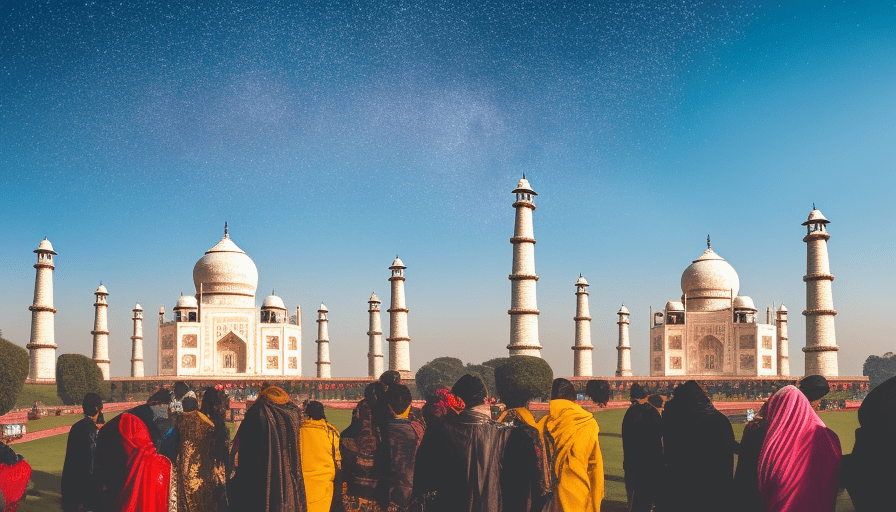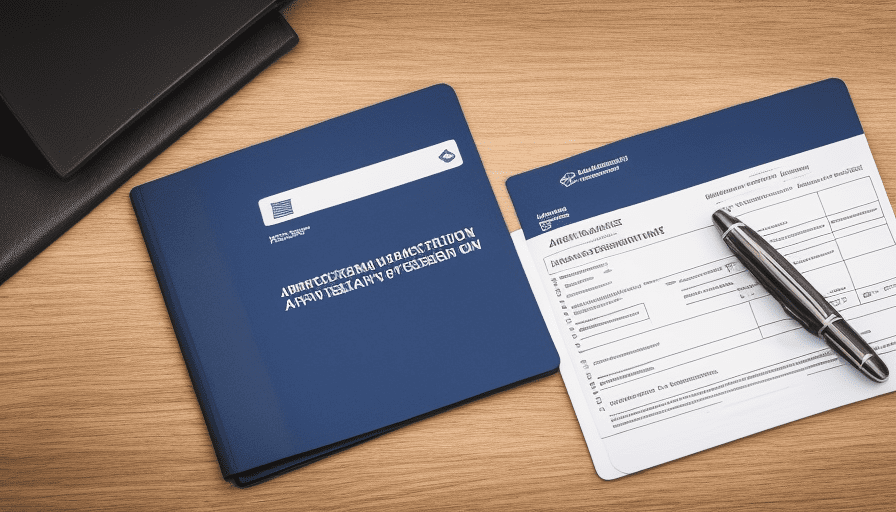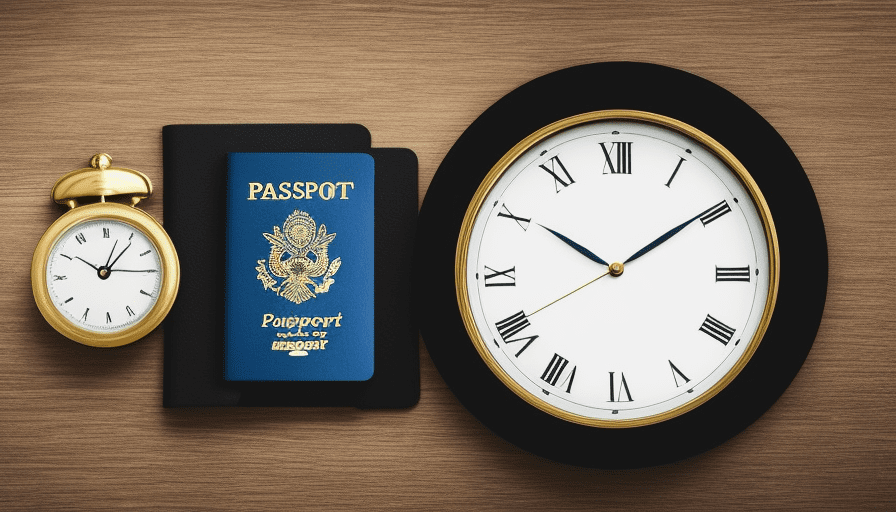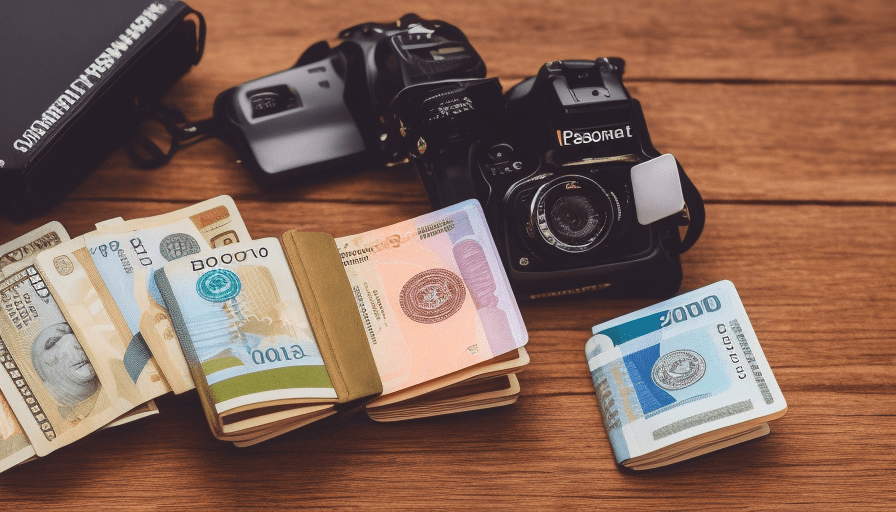Are you interested in how to obtain indian visa for british citizens? Did you know that over 800,000 British citizens travel to India each year? If you’re planning a trip to this vibrant country, it’s essential to understand the process of obtaining an Indian visa. This comprehensive guide provides British citizens with valuable information on visa requirements, application process, fees, and more. Whether you’re visiting for leisure or business, this guide will help you navigate the visa process and ensure a smooth and hassle-free journey to India.
Introduction to Indian Visa Requirements

He’s currently discussing the Indian visa requirements with the travel agency. As a British citizen planning a trip to India, it is crucial to understand the Indian visa requirements to ensure a smooth and hassle-free travel experience. The Indian visa for British citizens is commonly known as the India Tourist Visa. To obtain this visa, there are certain requirements that need to be fulfilled.
Firstly, British citizens need to have a valid passport with a minimum validity of six months beyond the intended duration of their stay in India. It is advisable to have at least two blank pages in the passport for visa stamps. Along with the passport, applicants are required to submit a completed visa application form, which can be obtained online or through the Indian Embassy or Consulate.
Additionally, applicants must provide two recent passport-sized photographs that meet the specified requirements, such as a clear white background and full face view. Proof of travel arrangements, such as flight tickets and hotel bookings, must also be submitted as part of the visa application process.
Furthermore, British citizens are required to pay the visa fee, which varies depending on the duration of stay and type of visa required. It is important to note that the visa application process may take several weeks, so it is advisable to apply well in advance of the intended travel dates.
Visa Options: Indian Visa for British Citizens

British citizens have several visa options available, including tourist, business, and student visas. Each visa type has its own specific requirements and purposes, catering to the diverse needs of British citizens traveling to India. The visa application process for UK citizens can be a bit intricate, but with the right information and guidance, it can be navigated smoothly.
To give you an idea of the different visa options and associated fees, here is a table outlining the visa types and costs for UK passport holders:
| Visa Type | Purpose | Fees (in GBP) |
|---|---|---|
| Tourist Visa | Sightseeing, visiting friends/family | £109.44 |
| Business Visa | Attending meetings, conferences, or trade events | £131.64 |
| Student Visa | Pursuing education in India | £122.64 |
It is important to note that these fees are subject to change, so it is advisable to check the official Indian government website or the Indian embassy in the UK for the most up-to-date information.
Now that you are aware of the visa options and fees, the next step is understanding the application process and forms required. This information is vital to ensure a successful visa application.
Application Process and Forms

The applicant must carefully fill out the necessary forms and submit them along with the required documents for the visa application process. To begin the process of obtaining an Indian visa, British citizens are required to complete the visa application form. This form can be downloaded from the official website of the Indian High Commission or obtained in person from the visa application center. It is essential to provide accurate and up-to-date information in the form, as any discrepancies may result in delays or rejection of the application.
Once the form is filled out, the applicant needs to submit it along with the necessary documents. These documents typically include a valid passport with at least six months of validity remaining, a recent passport-sized photograph, proof of residence, proof of travel arrangements, and proof of financial stability. It is important to ensure that all the documents are submitted in the required format and within the specified time frame.
The visa processing time can vary depending on the type of visa applied for and the current workload of the visa processing center. On average, it takes about 5-7 working days for the visa application to be processed. However, during peak travel seasons or in exceptional circumstances, it may take longer. It is advisable to apply for the visa well in advance of the intended travel date to allow sufficient time for processing.
Visa Processing Time and Fees

The current discussion topic of visa processing time and fees is of great importance to travelers planning to visit India. Understanding the visa processing time and fees is crucial in order to properly plan and budget for the trip. Here are some key points to consider:
- Visa Processing Time:
- It typically takes around 5-7 working days for an Indian visa to be processed.
- However, during peak travel seasons, the processing time may be longer, so it is advised to apply well in advance.
- Visa Fees:
- The visa fees vary depending on the type and duration of the visa.
- For a tourist visa, the fees range from £10 to £153, depending on the duration of stay and the number of entries permitted.
- Additional charges may apply for expedited processing or other services.
Understanding the visa processing time and fees is just the first step in obtaining an Indian visa. Once the application is submitted, travelers will need to prepare for the visa interview and gather the necessary documentation. It is important to note that the visa interview and documentation process is a crucial part of the visa application process. During the interview, the consular officer will assess the applicant’s eligibility and intentions to visit India. Therefore, it is essential to be well-prepared and present all required documents, such as a valid passport, completed visa application form, proof of travel arrangements, and financial statements. By providing the necessary documentation and confidently answering the consular officer’s questions, travelers can increase their chances of obtaining an Indian visa.
In the subsequent section, we will delve deeper into the visa interview and documentation process, providing valuable insights and tips to ensure a successful visa application.
Visa Interview and Documentation

During the visa interview, applicants must provide all necessary documentation to prove their eligibility and intentions to visit India. The visa interview is a crucial step in the visa application process, as it allows the consular officer to assess the applicant’s credibility and purpose of travel. To increase the chances of a successful visa application, it is important for applicants to prepare thoroughly and be aware of common visa rejection reasons.
One of the most important visa interview tips is to be well-prepared. Applicants should ensure that they have all the required documents, such as a valid passport, completed visa application form, proof of financial stability, and a detailed travel itinerary. It is also advisable to bring any supporting documents that can strengthen the applicant’s case, such as proof of accommodation, return flight tickets, and letters of invitation from Indian residents, if applicable.
During the interview, applicants should be honest and provide clear and concise answers to the consular officer’s questions. It is important to demonstrate genuine intentions to visit India, such as for tourism, business, or educational purposes. Applicants should also be able to explain their travel plans and provide a realistic timeline for their stay in India.
Despite thorough preparation, visa rejections can still occur. Common visa rejection reasons include incomplete or inaccurate documentation, lack of financial stability, insufficient proof of ties to the home country, and concerns about the applicant’s intention to overstay the visa. In case of a visa rejection, applicants can reapply and address the concerns raised by the consular officer in their previous application.
Conclusion: Preparing for a Visit to India

An applicant should thoroughly prepare and provide all necessary documentation to increase their chances of obtaining an Indian visa for their visit to India. The process of obtaining an Indian visa can be complex, but with proper preparation, it can be a smooth and hassle-free experience.
To help applicants visualize the process, here is a step-by-step guide:
- Before applying:
- Research: Gather information about the type of visa required for your visit to India. For example, there is no India visa on arrival for UK tourists, so you will need to apply in advance.
- Complete the application form: Ensure that all the required fields are filled accurately. Any inconsistencies may result in delays or rejection of the visa application.
- Gathering documentation:
- Passport: Make sure your passport is valid for at least six months beyond your intended stay in India.
- Photographs: Prepare two recent passport-sized photographs with a white background.
- Supporting documents: Depending on the purpose of your visit, you may need to provide additional documents such as a letter of invitation, flight itinerary, or hotel reservation.
It is essential to note that the duration of the Indian visa is usually determined by the applicant’s purpose of visit. If you need to extend your stay in India, you must apply for a visa extension in India before your current visa expires.